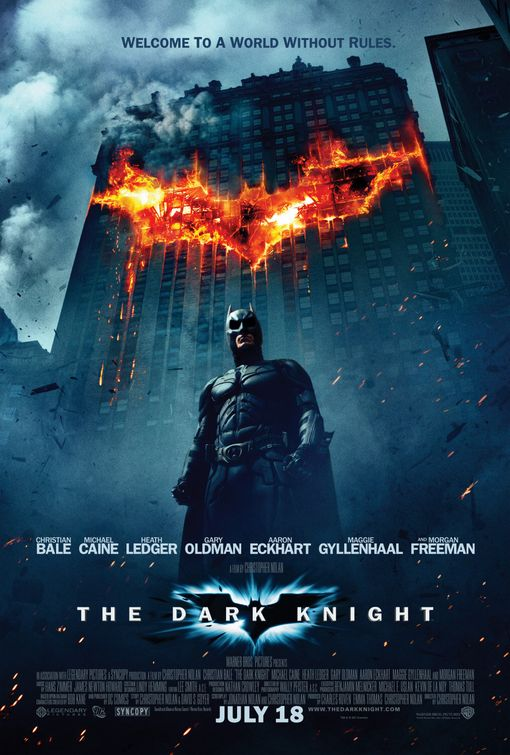I like to read reviews. It started out just with movie reviews, particularly bad movies. Reviewers always seemed to have more fun savaging the most insipid, most banal, most blatantly commercial dreck possible. At their absolute best, these reviews could make me laugh out loud when the right phrase was found to capture the inanity of some plot point or absolute lack of acting talent. Consider this little chestnut by A.O. Scott of The New York Times. "Watching [Smokin' Aces] is like being smacked in the face for a hundred minutes with a raw sirloin steak. By the end, there’s blood everywhere, a bad smell lingering in the air, and vegetarianism — or starvation or blindness — starts to look like an attractive option." Screenwriters on their best days might pull something like that off. Even better, I do not have to worry about reviewers going on strike. Their jobs are tenuous enough as it is already.
I like to think my review-reading habits have matured a little. Now I enjoy the reviews of more lauded movies as well. While these can still make me retch when they stray into straight up worship, it is something beautiful when someone finds theirself transported by film and manages to capture some of that feeling in words. As you might guess, Rotten Tomatoes and Metacritic are major time sinks of mine. They are composite sites, offering little or no original content but fairly comprehensive lists of and links to reviews from other websites. While Rotten Tomatoes is solely concerned with movies and offers links to news items and some original writing in the form of lists and commentary on the film industry, Metacritic only links to reviews from professionals and offers reviews of music, television and video games besides film. I originally preferred Rotten Tomatoes for its much larger directory of reviews, but Metacritic has risen in my esteem as my appetite for music has increased.
It was in pursuing this latest interest that I came to an interesting discovery. Within the divisions of its site, Metacritic offers the average rating and links to recent releases. Idly perusing them a week or so back I was surprised to find an incredible disparity in the ranges of reviews between genres. Currently the movie ratings run from 93 (WALL-E, which bloody well deserves it) to 24. Video games top out at 85 and rush down to 18. Recent music albums? The highest rated sits at 90 and the lowest at 39 (the 11th lowest-rated album of all time according to Metacritic). The disparity is even more obvious if you take a quick glance. Metacritic colorcodes its average scores to offer a general suggestion on its value. Green means a score of 60 or higher, yellow is between 40 and 60, and red is all that remains. A fair mix of all three colors can be found on the movie and game lists, but there is only a single red score in all recent albums and a definite bias towards green for the rest. Assuming we are not in midst of a musical Golden Age or Dark Times for film and games, this discrepancy interests me.
In conversation, my friend Emmett suggested this may be because people are not as attentive towards music as they are towards games or movies. If they were, they would have no problem finding entirely distasteful albums as easily as the other pop culture genres. I am willing to accept this thesis in general, but it is not explanation enough. The reviewers on Metacritic are professionals, people who listen to a lot of music, watch a lot of movies and play a lot of games and are paid not so much to do it well. They are definitely attentive people.
Yes, attention does have an impact, but I would suggest that the demands of attention a medium puts upon its audience are a more significant cause for this disparity in general preference than anything else. In a theater you can do little but pay attention against the onslaught of surround sound and a freaking huge screen. From experience, if you are not paying close attention when playing a game, you will lose, and that is incredibly frustrating. Meanwhile, music, engaging only a single sense, does not immediately demand as much from its audience and leaves them freer to wander in thought and body. Even if we are compelled to listen to Kevin Federline's Playing With Fire, the lowest-rated album of all-time on Metacritic, we can at least put it on in the background, focus on something else and idly tap a foot to the beat. In the same way, bad movies are a lot more fun when watched at home where we are no longer restrained by theater etiquette and can move and mock as the wont takes us. Video games, unfortunately, always force the player's attention. Maybe someone standing by can laugh when an idiotic collision detection system causes another loss, but the player will likely be less amused.
It is a lot harder to hate something when we can so easily avoid it or, at least, distract ourselves, and if we do not take those opportunities, I guess it is our own fault for being miserable then.
The Return
10 years ago






